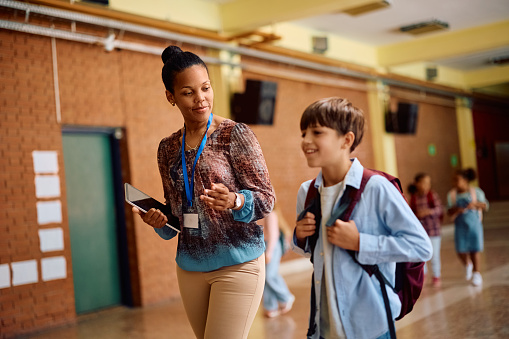
HOW WE MEASURE OUR DIRECT IMPACT
Challenge Success has developed a robust evaluation plan to measure the direct impact of our work at multiple levels. In the short term, we track individual outcomes such as shifts in knowledge, perspectives, and mindsets; strengthened skills and capacities; and personal behavior changes.
Intermediate outcomes reflect school-wide change, including shifts in community values, readiness for change, and the adoption of new policies and practices. We measure short-term and intermediate outcomes through:
At the end of the 2024-25 school year, School Partnership team members reported positive outcomes, including:
made a change to positively impact student well-being, engagement, or belonging
Long-Term Outcomes
Over time, shifts made in the near term build toward positive long-term outcomes: improving student well-being, engagement, and belonging, and helping schools adopt broader definitions of success that recognize each student’s unique assets and identities. As a result of changes made in schools we have worked with, we see evidence of:

widespread and systemic Impact
While our day-to-day work with schools drives meaningful change for students and educators, our vision reaches further. Challenge Success aims to be a catalyst of change, shaping not just individual schools but the broader field of education.
Through our research, publications, and advocacy efforts, we help to shape the way educators, families, and policymakers approach student well-being, engagement, and belonging. We amplify student and teacher voices, share practical tools that help educators create thriving classrooms, and partner with thought leaders and like-minded organizations to fuel a growing movement that challenges narrow, outdated definitions of success and builds healthier, more balanced, and more equitable learning environments where every student can thrive.